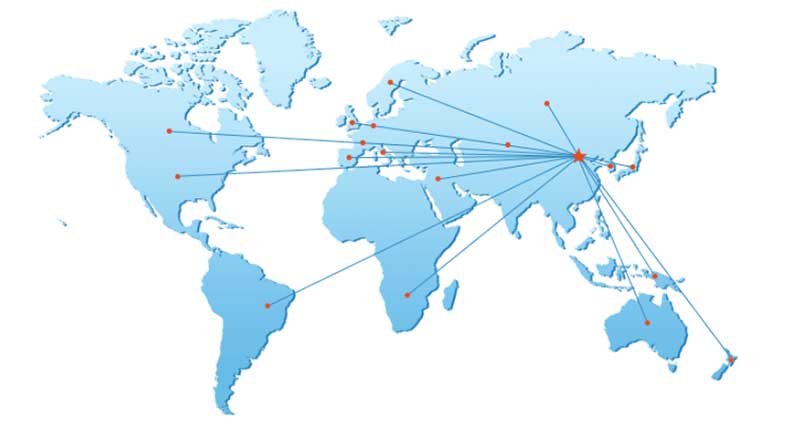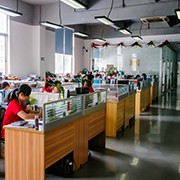As a professional...
The epidemic in Southeast Asia has worsened, and a large number of packaging manufacturing orders have returned to China
Core reminder: Delta virus, a mutant strain of the new crown virus, is coming in fiercely, sweeping the world, and the number of new infections in many Southeast Asian countries continues to reach new highs, making it one of the most severely affected regions in the world. Low vaccination rate
Delta virus, a mutant strain of the new crown virus, is coming so fiercely that it has swept the world, and the number of new infections in many Southeast Asian countries continues to reach new highs, making it one of the most severely affected regions in the world. Southeast Asia, which has a low vaccination rate and inadequate control of the epidemic, has had a huge impact on the global supply chain. Manufacturing industries such as apparel, textiles and semiconductors are facing the risk of interruption, and orders continue to flow out, which has a huge impact on China's economy and global supply chain.

Vietnam’s manufacturing industry closes more, more than 35% of garment factories shut down
This round of the epidemic in Vietnam has reached the most critical state. It has been confirmed that the capital Hanoi will be extended to August 22, and Ho Chi Minh City will be blocked until September 15. As of the 18th, Vietnam has 180,272 confirmed cases, with a total of 302,101 confirmed cases and 6,770 deaths. Affected by this wave of new crown epidemics, Vietnam's closed manufacturing companies have greatly increased. In the first half of the year, the number of companies that closed down in Vietnam reached 70,209, a year-on-year increase of 24.9%. Among them, the textile industry, a pillar industry in Vietnam, suffered severe damage, and 35% of enterprises have been forced to close their businesses.
Indonesia has delayed social distancing restrictions five times, and small and micro enterprises have closed down
As the world's fourth most populous country and the largest economy in Southeast Asia, Indonesia suffered the second major outbreak since the epidemic this summer. As of the 18th, the number of confirmed cases of new coronary pneumonia in Indonesia has risen to 3,908,247, and Indonesia has newly confirmed 15,768 cases, and the total number of deaths has reached 121,141. The Indonesian government announced that it will extend the emergency restrictions for the fifth time, and the restrictions will be implemented until the 23rd of this month. According to data from the Indonesian Association of Small, Medium and Micro Enterprises, the epidemic has led to the closure of more than 30 million small, medium and micro enterprises. The largest cross-border fast fashion giant, the Chinese brand SHEIN, has ceased operations in Indonesia on July 29.

Malaysia's movement control, packaging manufacturing is tight
Malaysia’s latest wave of epidemics has started in July, and the city’s lockdown is currently being extended indefinitely. In the global semiconductor market, Southeast Asia accounts for 27% of the global industry share, while Malaysia accounts for as much as 13% of the global industry. Due to regulatory policies, some semiconductor companies still need to close some production lines according to government demand. For the industrial chain with tight production capacity, the situation is further severe.
The current delta mutant strain has spread throughout the Philippines. The capital of the Philippines, Manila, has re-entered the city from August 6. As of August 19, the Philippines has newly confirmed 105,151 cases, a total of 1,776,495 confirmed cases, and 30,623 deaths. . The blocked Philippines can only operate and work normally for enterprises in industries that are necessary for the livelihood of the people. During the lockdown period, only one person in a household is allowed to go out to purchase necessities, and many residents face unemployment.
Thailand's 29 regions implement the highest level of epidemic control
On August 16, the New Crown Pneumonia Epidemic Management Center of the Thai Government notified the extension of the prevention and control measures such as the “city closure” and curfews of the 29 highest-level epidemic control areas in the country, including the capital Bangkok, until August 31. In terms of work arrangements, it is required to continue to work from home, to do a good job of internal isolation, and to implement closed management for companies with more than 100 employees. On August 20th, a mini-free trade agreement was signed with my country’s Hainan Province, which will create more business opportunities for Thai companies, especially small and medium-sized enterprises, not only in traditional trade and investment, but also in extensive cross-border e-commerce cooperation.
The current epidemic in Southeast Asia is an opportunity for China. Although the epidemic has caused the stagnation of factory operations in Southeast Asia, it has increased the risk of the end of the global supply chain. But as we all know, China's industrial chain has the world's most complete industrial system, and its upstream and downstream associated supporting capabilities are second to none in the world. Coupled with the scale effect and agglomeration effect of China's entire manufacturing industry, the competitive advantage is very obvious. In the face of the epidemic, the strict and efficient prevention and control measures adopted by the Chinese government not only won the heartfelt support of the Chinese people, but also quickly controlled the spread of the epidemic. With the epidemic in Southeast Asia now raging, China is naturally the best choice for buyers to transfer orders. At present, many orders from Southeast Asia have returned to China.

Not long ago, Adidas said that the production capacity of most of its suppliers in Vietnam has been no longer available since mid-July, and it is expected to lose 600 million US dollars in sales in the second half of the year.
At the same time, the US footwear provider Wolflin Group has already transferred part of its production capacity back to China this year. The person in charge of the company said that the current supply situation in Southeast Asia is very unstable.
According to news, Apple will transfer AirPods China's production line to Vietnam from 2020, but due to the impact of the new crown epidemic, Apple has to return to China to produce AirPods3 on a large scale.
Generally speaking, the packaging industry will never accelerate its pace suddenly, but the new crown epidemic has obviously caused an incredible change in the carton industry, which occupies an important position in the packaging sector.
In the past 18 months, various levels of urban lockdowns have forced millions of people to switch from offline consumption to online purchases. This result also brightens the prospects of the paper packaging industry, which is at the core of the e-commerce economy, with a value of 350 billion US dollars. According to data from consulting firm Smithers, the amount of cardboard used to deliver goods from retailers to households has surged by nearly 40% last year.
The carton packaging company that was previously unknown is now being chased by various investors. Since the stock market fell to lows in March 2020 due to the new crown virus pandemic, the London-listed Smurphy Capa Group’s share price has risen by 84%, its competitor Mondy’s share price has risen by 58%, and in New York The share price of the listed International Paper has also almost doubled.
Those investors who are enthusiastic about the industry's prospects say that they don't just count on the new crown epidemic to accelerate the industry's transition to e-commerce. The metal packaging industry is also seen as an environmentally friendly industry because consumer-oriented companies replace plastic packaging with more sustainable alternatives. Companies are enjoying the structural tailwinds brought about by e-commerce demand, and the industry is witnessing the transformation of customer preferences and investments to sustainable packaging solutions.

Under the trend of policy and market consumption, environmental sustainability will become the focus of future development of the packaging industry. At the same time, with the inconvenience of multi-regional production caused by the raging epidemic, the integration of packaging companies will also become the focus of future development. Through integration so that companies can carry out work in multiple regions, it will not only improve low-risk resistance. Stability can also realize the company's own innovation and development.

.png)
.jpg)
.jpg)
.jpg)













Derniers commentaires